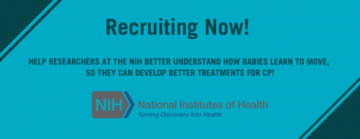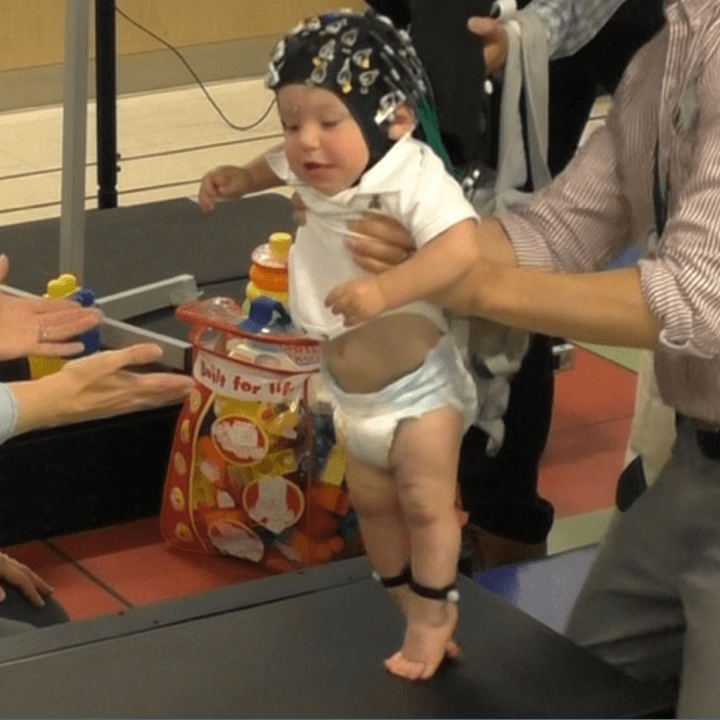

Little is known about brain activity while children learn new motor skills, but now researchers have new ways to study the brain while people move using electroencephalography (EEG). EEG records electrical activity in the brain.
Using this technology, researchers at the National Institutes of Health (NIH) are studying motor skills and brain development of infants who are at high-risk for cerebral palsy (CP). Results may assist with better treatment methods for CP in order to help children move better.
Main Purpose of the Study:
To learn more about how infants and young children with and without cerebral palsy use their brain to move their arms and legs to perform important everyday motor activities like playing with toys and exploring the environment.
Who is Eligible?
Infants age 3 months - 5 years with and without cerebral palsy who are not yet walking independently.
What Will Happen During the Study?
Screenings - We will conduct a physical exam to make sure it is safe for your child to participate. Your child will receive a comprehensive developmental assessment. We will also take a measurement of your child's head size to determine the most comfortable EEG cap size. We will ask you questions about your child's medical history and your child's motor abilities.
Study Visits - Participants will have at least 1 study session. Children who are not yet walking on their own are invited to come for multiple visits, no more than one per month as their walking progresses (all optional). Sessions last approximately 2-3 hours.
- Your child will be encouraged to reach for toys with each hand.
- Your child will be encouraged to take supported steps on a treadmill.
- Your infant will wear a snug cap containing sensors that record brain activity during the motor tasks.
- During the visit there will be motion capture recording. Balls are attached to your child's arms and legs by stickers or Velcro straps and are tracked by infrared and video cameras.
- We will be happy to share the results of your child's developmental test results with you. Several members of the research team have extensive clinical and research experience in cerebral palsy and would be willing to discuss your child's motor function and possible treatment options with you, if desired.
Compensation
Compensation is provided for participation: $20 for the 1st hour and then 10 for each subsequent hour, with $10 for each procedure (e.g. EEG, motion capture). Most participants receive at least $40-50 per session.
Travel is not reimbursed.
There are no charges for study-related tests or visits.
CONTACT:
To enroll, call us at 877-888-3332 and refer to NIH study #18-CC-0052
Researchers want to learn more about how small children with and without cerebral palsy use their brain to control their body as they are learning new motor skills. This may help them find new ways to help children move better.
